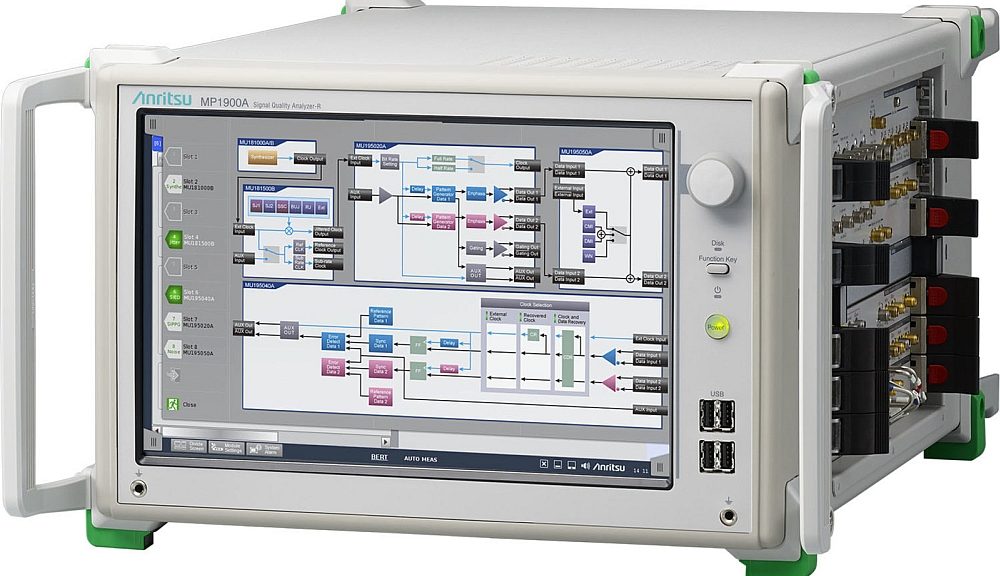Anritsu announces the release of the Variable ISI MU195020A-040/041 option for upgrading the Emphasis function of the Pulse Pattern Generator for the Signal Quality Analyzer MP1900A series, along with the USB Link Training Software MX183000A-PL022 supporting the USB3.0/3.1 Receiver Test.
Increasing mobile data traffic and the spread of cloud services is accelerating the introduction of 100G/200G/400G Ethernet for network interfaces along with PCI Express Gen4 and USB3.1 for bus interfaces. However, the effects of transmission path loss and noise resulting from the faster signals used by these standards and the integration of ICs and modules highlights, according to Anritsu, the importance of stress Rx testing using signal sources with added transmission path loss and noise.
The MP1900A is a Bit Error Rate Tester (BERT) supporting design and testing of high-speed interfaces, such as 100G/200G/400G Ethernet, PCI Express, USB, and Thunderbolt. The newly developed Variable ISI option allows evaluations of high-speed interfaces, backplanes, and cables. In addition, USB Link training supports measurements of the PHY-layer of USB3.0/3.1 devices by controlling the MP1900A.
With a built-in PPG supporting a 10Tap Emphasis function for testing the effect of transmission path loss plus Jitter and Noise Addition functions, a BER measurement function, and Link Training function, Anritsu’s MP1900A series is dedicated for measuring high-speed interfaces.
The Variable ISI option uses the 10Tap Emphasis function with signal controllability to emulate CEI-25G/28G-defined signal path transmission losses which cannot be achieved by utilizing an emphasis function with lower number of taps. In addition, Anritsu’s MP1900A can automatically calculate the Emphasis settings for compensating these losses based on transmission path S-parameter data. With these new capabilities, test signals emulating the transmission path impairments can be generated, allowing the impact of transmission path losses on the evaluated device to be evaluated without testing various PC boards.
USB Link Training is important for measuring USB interfaces. The built-in Link Training function supports transitioning to the device evaluation measurement mode, and when used in combination with the LTSSM Log Analysis, it can evaluate USB device receivers and supports all in one measurement of high-speed interfaces such as PCI Express, USB, and Thunderbolt.






